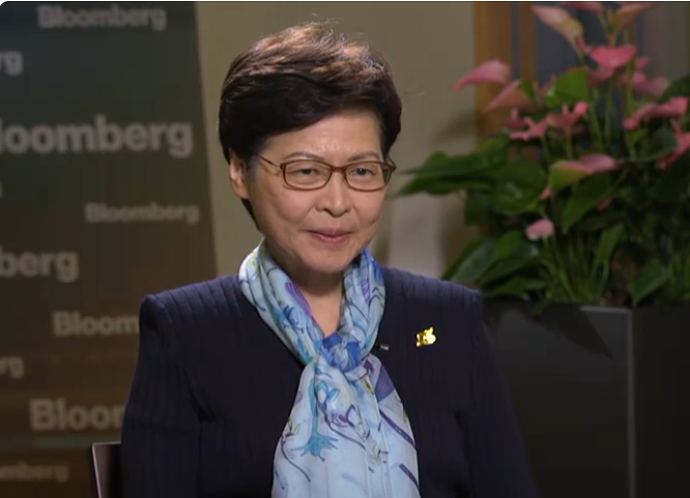Not only did Carrie Lam Cheng Yuet-ngor become the Chief Executive, but she also became a part of history when she took the oath of office on July 1, 2017. Lam broke a symbolic ceiling in one of Asia’s most complicated political arenas as the first female leader of Hong Kong. Her ascent from modest beginnings to the highest position in the area was a tale of bureaucratic genius and unwavering ambition. She was raised in the working-class Wan Chai district.
Lam’s legacy, however, is not at all linear. Her term, which started with pledges to “heal the social divide,” quickly became characterized by some of the most divisive events in the city. Lam led with purpose by combining Beijing’s orders with technocratic discipline, but frequently at the price of public confidence. Her experience highlights the tremendous pressure that comes with political firsts as well as what it means to be a pioneer.
Carrie Lam – Profile Summary
| Attribute | Details |
|---|---|
| Full Name | Carrie Lam Cheng Yuet-ngor |
| Date of Birth | 13 May 1957 |
| Birthplace | Wan Chai, British Hong Kong |
| Nationalities | Hong Konger (1997–), British (1990–2007) |
| Education | University of Hong Kong, Wolfson College, Cambridge |
| Spouse | Lam Siu-por (m. 1984) |
| Children | 2 |
| Former Role | Chief Secretary for Administration (2012–2017) |
| Term as Chief Executive | 1 July 2017 – 30 June 2022 |
| Votes Secured (2017) | 777 out of 1,194 Election Committee votes |
| Appointed By | Chinese Premier Li Keqiang |
| Reference | Official Bio – GovHK |
A Career Started in Bureaucracy: From Civil Servant to CEO
Carrie Lam’s three decades of government service, which established her reputation for loyalty and competence, made her ascent through the ranks of Hong Kong’s civil service especially methodical. She stood out in a male-dominated government thanks to her early work in social welfare and housing, which demonstrated her organizational skills and remarkably effective problem-solving approach.
She advanced to the position of Chief Secretary for Administration by 2012. Although it wasn’t widely accepted, her appointment as CEO five years later was not surprising—Beijing’s support was evident. Lam received 777 votes despite trailing rival John Tsang in popularity polls because of the contentious Election Committee structure in the city.
A Protest-Marred Leadership with Policy Shockwaves
Lam’s term got off to a hopeful start. However, it underwent a significant change during the pandemic and the controversy surrounding the extradition bill. Widespread protests were triggered by her proposed bill in 2019 that would have permitted extradition to mainland China; some of these protests developed into citywide movements demanding greater autonomy and democracy.
Lam infuriated the local and international communities by ignoring important demands like an impartial investigation into police behavior. Despite her apparent unwavering loyalty to the central government, her approval ratings fell to all-time lows.
Nevertheless, it was indisputable that she was able to remain composed under extreme pressure. Even as political freedoms were clearly eroding, she handled constitutional turbulence with a steady, if divisive, hand, streamlining crisis management operations.
Under the National Security Law, Governance
The National Security Law, which Beijing imposed in 2020, fundamentally changed Hong Kong’s legal and political environment. Lam argued that in order to restore order following the unrest, the law had to be used as a stabilizing force. However, detractors saw it as an especially oppressive tool, employed to crush pro-democracy organizations and stifle dissent.
As CEO, Lam was caught in a governance model that was increasingly influenced by the mainland and was portrayed as both an enforcer and an advocate. Beijing’s directives had a big impact on her administration, which deviated from the city’s semi-autonomous governance structure that was promised under “one country, two systems.”
A Departure Framed by Duty Rather Than Failure
Lam declared in April 2022 that she would not run for a second term because she wanted to spend more time with her family. Supporters praised her persistent fortitude and administrative discipline, while detractors viewed this as a silent resignation amid extreme unpopularity.
John Lee, a former security chief whose tenure indicated a more conservative era of government, succeeded her. Lam once pledged to modernize the office, but her tenure had irrevocably changed it.
An Unresolved Aspect of the Political History of Hong Kong
In addition to being the first female leader of Hong Kong, Carrie Lam will go down in history as a leader whose administration served as the catalyst for significant political transformation. Despite disagreements over her policies and choices, she had a significant symbolic impact as a female leader in a patriarchal system.


